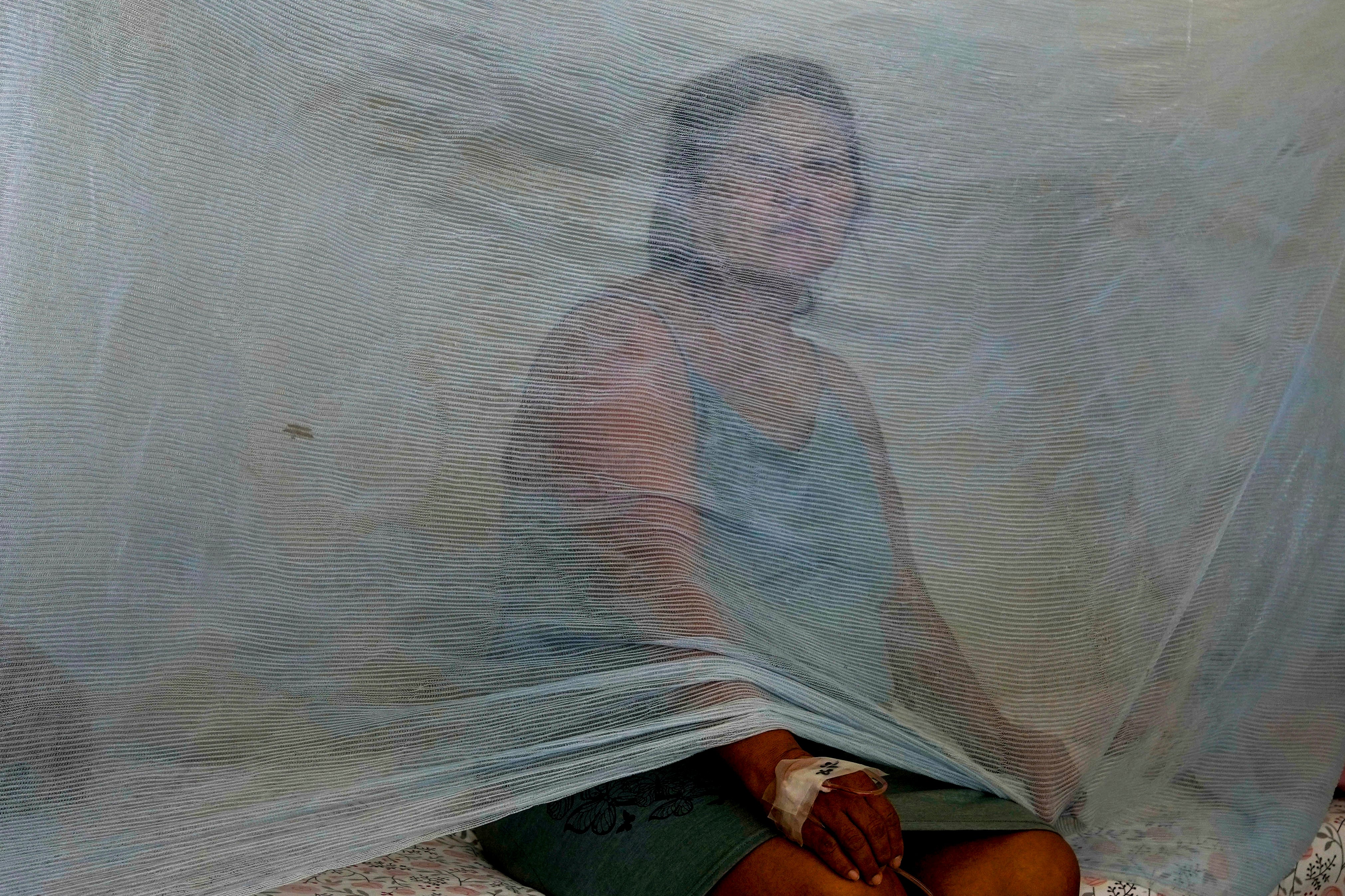Dengue cases set a new record in the Americas this year as deaths also surge
Dengue fever is sweeping across the Caribbean and the Americas, with a record 12.6 million suspected cases of the mosquito-transmitted virus reported this year, nearly triple the number from last year

Dengue fever is sweeping across the Caribbean and the Americas, with a record 12.6 million suspected cases of the mosquito-transmitted virus reported this year, nearly triple the number from last year, health officials said Tuesday.
Cases of dengue have been surging globally as warmer weather brought on by climate change enables mosquitoes to expand their reach.
The Pan American Health Organization —the regional office of the World Health Organization in the Americas — said deaths from dengue are also rising.
More than 7,700 deaths have been reported in the Caribbean and the Americas so far in 2024, a more than 200% increase, compared to 2,467 deaths in 2023, according to the organization.
The number of cases in the region, which includes the United States, is the highest reported since record keeping began in 1980, PAHO director Jarbas Barbosa said at a news conference.
“This is linked directly to climatic events,” he said, referencing warmer temperatures, droughts and flooding. A fast population growth, unplanned urbanization and poor sanitation have contributed to the rise in dengue.
The virus has surged worldwide since last year and spread to areas previously free of dengue, according to PAHO.
Brazil is reporting the highest number of dengue cases with more than 10 million, followed by Argentina, with more than 580,000, and Mexico with more than half a million.
In the Caribbean, Guyana is leading with more than 41,000 cases, followed by French Guiana, the Dominican Republic and Martinique.
Meanwhile, local dengue transmission has been reported in California, Florida and Texas this year, according to the U.S. Centers for Disease Control and Prevention.
There are four types of dengue virus, simply known as 1, 2, 3 and 4. Having one type of virus doesn't provide immunity from others.
For the first time in a decade, dengue serotype 3 has predominated in Mexico, Central America and parts of the Caribbean in the second half of the year, according to Thais dos Santos, PAHO’s advisor on arboviral diseases.
Many infected people don’t get sick, but some experience headache, fever and flu-like symptoms. Severe cases can cause serious bleeding, shock and death. Repeated infections can be especially dangerous.
Dengue cases usually surge during the wet season, but by late March, Puerto Rico already had declared an epidemic, with officials warning last month that it cannot be controlled unless residents cooperate. The U.S. territory has reported more than 4,900 cases and at least nine deaths so far this year. Victims include a 17-year-old girl and a 31-year-old woman.
The cases in Puerto Rico nearly quadrupled from last year, according to government data.
Lydia Platón, a 55-year-old English professor at the University of Puerto Rico, got dengue in October. “You have fever all the time. You have horrible chills,” she said. “I don’t feel that my energy has returned yet.”
Her neighborhood reported five cases in six weeks, which she blames on heavy rains at the time and stagnant and accumulated water. One of the cases was her 17-year-old daughter. Platón said she now lights incense and sprays herself with repellant every afternoon.
Puerto Rico officials are urging people to get rid of stagnant water where mosquitoes lay eggs. The government in Trinidad and Tobago has started issuing fines to people whose properties have become breeding sites for mosquitoes.
This year, more than one-third of cases in Costa Rica, Mexico and Paraguay have been reported in children younger than 15, with Guatemala reporting a high number of child deaths, Barbosa said.
Vaccines against dengue have been introduced in Peru, Brazil and Argentina, with Honduras slated to receive them next year, but they’re meant mostly for children and are most effective in those already infected with dengue once, dos Santos said.
She noted that supplies are limited and that vaccines are not expected to have a big impact on transmission. She stressed that preventive measures remain crucial.
“If there’s no mosquito, there’s no dengue,” she said.
Bookmark popover
Removed from bookmarks